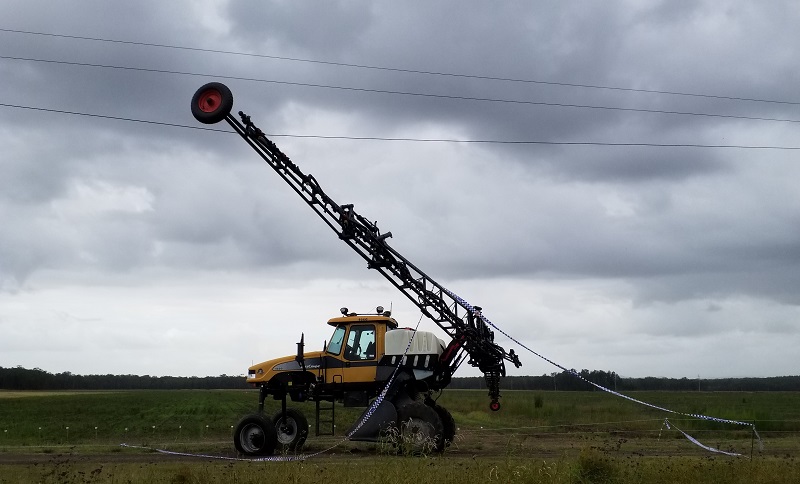Electrical hazards in the agricultural industry pose serious work health and safety risks. Common examples of hazards include:
- Power lines – these may be difficult to see or avoid when operating some farm machinery such as harvesters or helicopters.
- Faults causing fire or explosion where electricity is the source of ignition, for example in a workshop or storage shed.
- Floods or standing water – deposited mud and debris can conduct electricity or hide live electrical wires, creating a serious risk of electric shock.
The risks posed by electrical work can be increased in some agricultural environments, for example:
- Outdoors or in wet surroundings – equipment may become wet and electrical fittings may be at greater risk of damage.
- In confined spaces such as inside a tank, bin or silo – it may be difficult to avoid electrical shock if an electrical fault develops.
- In remote locations – if you suffer an electrical injury it may be difficult to get help quickly.
Safety measures to control electrical risks during agricultural work include:
- always using licensed or registered electricians to carry out electrical work
- providing safe and suitable electrical equipment and not using leads and tools unsuited to damp or wet conditions
- inspecting leads before use and removing any that are damaged
- not overloading socket outlets by using adaptors as this can cause fires
- lowering augers, irrigation equipment and other farm machinery before transporting them to avoid contact with overhead powerlines
- checking Before You Dig Australia before you dig, and
- ensuring that any unsafe electrical equipment is disconnected or isolated from its electricity supply, and once disconnected, is not reconnected until it is repaired or tested and found to be safe, or is replaced or permanently removed from use.
| PCBUs: | Workers: |
|---|---|
| As a person conducting a business or undertaking (PCBU), you have a duty to keep yourself, your workers and your workplace safe from electrical risks. You must eliminate or minimise risks so far as is reasonably practicable. | Your PCBU has a duty to keep you and your workplace safe from electrical risks. You also have a duty to take reasonable care of your safety and that of others in the workplace. |
The model WHS Regulations include specific requirements related to managing risks associated with electrical work. See Part 4.7 of the model WHS Regulations for more information.

Image credit: SafeWork NSW
A worker suffered a fatal electric shock when the spray boom tip of the tractor they were operating came into contact with overhead powerlines on a plantation farm. The shock occurred when the worker stepped down from the vehicle.
